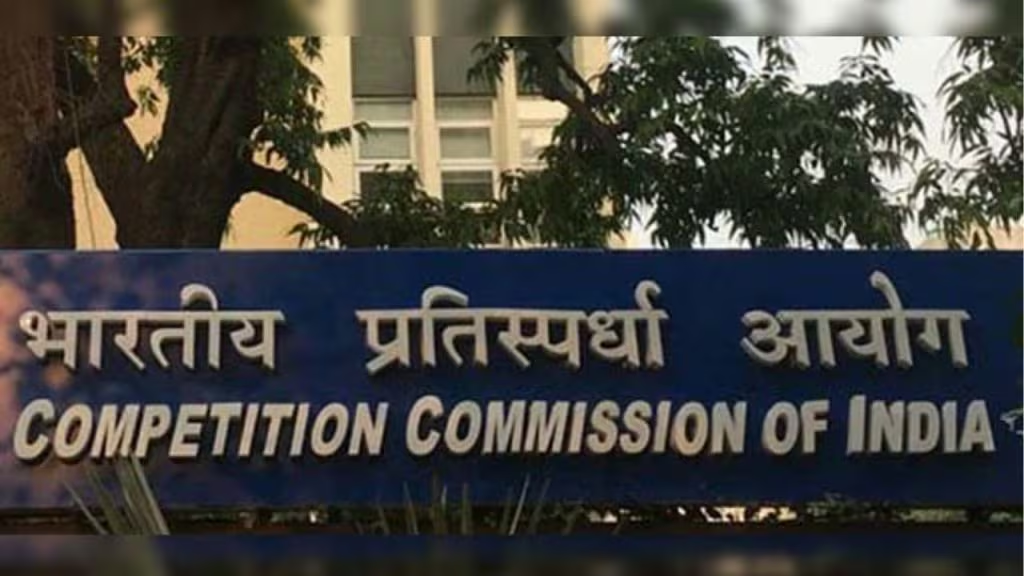Introduction
The digital economy thrives on data, making user privacy and competition regulation two crucial aspects of modern governance. One of the most significant cases in this realm is the Competition Commission of India’s (CCI) investigation into WhatsApp’s 2021 Privacy Policy update and its implications for parent company Meta (formerly Facebook). Scriberes Krrishiv and Samyukta under the guidance of Anupam Sanghi assess how this case has set a precedent for how digital giants operate in India, balancing dominance with consumer rights.
In this article, we explore all the specifics of the case – what was the policy update, regulatory reaction, and latest updates.
What was the WhatsApp (2021) Policy Update?
In early 2021, WhatsApp introduced a new privacy policy that required users to consent to sharing their data with Meta and its subsidiaries. The update eliminated the previous option of opting out of such data sharing, effectively mandating acceptance as a condition for continued use of the service. This policy sparked widespread concern over potential violations of user privacy, monopolistic behavior, and unfair trade practices.
How did the CCI react to the Policy’s adoption?
Recognizing the potential risks posed by WhatsApp’s policy change, the CCI initiated an inquiry into the matter. Despite objections from WhatsApp and Meta regarding the Commission’s jurisdiction over privacy concerns, the CCI asserted its authority under the Competition Act, 2002. The Commission argued that data is an essential competitive asset, and its misuse could distort market conditions by granting Meta an unfair advantage in digital advertising.
What were the key allegations against WhatsApp and Meta?
- Abuse of Dominant Position – WhatsApp, with its vast user base in India, was accused of imposing unfair terms on consumers, leveraging its market power to enforce a “take-it-or-leave-it” policy. The mandatory nature of the 2021 update left users with no choice but to accept the new policy, making it exploitative and coercive.
- Unfair Data Collection and Sharing – The 2021 update allowed WhatsApp to collect excessive user data, including metadata, device information, and user interactions. This data was then shared with Meta, enabling it to consolidate its dominance in digital advertising by enhancing ad targeting capabilities, further strengthening its market position.
- Lack of Transparency – The broad and vague language of the privacy policy meant that users were not fully aware of the extent of data collection and its intended use. WhatsApp failed to provide a clear rationale for the necessity of collecting certain data points and did not adequately inform users about the potential risks associated with the new policy.
What were WhatsApp and Meta’s Defenses?
- Data protection and privacy issues should fall under the purview of specific laws like the Digital Personal Data Protection Act, 2023 (DPDP Act) and the Information Technology Act, 2000, rather than competition law.
- Their data-sharing practices were consistent with industry norms, citing similar policies adopted by other global tech companies. They argued that data aggregation is a standard practice used to improve user experience, enhance security, and offer personalized advertising. Furthermore, Meta and WhatsApp contended that their policies complied with existing legal frameworks and consumer expectations, reinforcing that their approach to data sharing did not constitute anti-competitive behavior, but rather aligned with standard digital market practices.
- The CCI had overstepped its jurisdiction, according to WhatsApp and Meta, as privacy issues were already being examined by the Supreme Court. The Supreme Court’s pending review of the policy meant that the CCI’s simultaneous investigation created unnecessary regulatory overlap, potentially leading to inconsistent rulings on data privacy and corporate obligations.
However, the CCI countered these claims, stating that data privacy and competition law are interconnected. It emphasized that excessive data control by dominant firms could suppress competition, and therefore, its investigation was justified.
What was the Verdict?
In November 2024, the CCI ruled against Meta and WhatsApp, imposing a penalty of Rs. 213.14 crore on Meta and ordering WhatsApp to:
- Provide users with a clear and prominent option to opt out of data sharing, even if they had previously accepted the 2021 policy.
- Restrict data sharing to only what is necessary for the app’s core functionality, preventing excessive data collection.
- Ensure that future policy updates undergo thorough regulatory scrutiny before being implemented, thereby preventing sudden and potentially exploitative changes.
The NCLAT Upholding of CCI’s Decision
WhatsApp and Meta appealed against the ruling to the National Company Law Appellate Tribunal (NCLAT), which upheld the CCI’s decision. The tribunal reaffirmed that users must have genuine consent and choice regarding data sharing and that dominant players cannot impose unfair conditions. The NCLAT’s ruling reinforced the legal precedent that user rights must be safeguarded even in a rapidly evolving digital landscape.
The Evolving Landscape of Data Privacy in India
With the DPDP Act now in place, India is witnessing a shift towards a more structured and stringent regulatory framework governing data privacy. The DPDP Act introduces a framework for data fiduciaries, mandates explicit user consent for data collection, and establishes the Data Protection Board of India (DPB) to oversee compliance. The DPB is tasked with enforcing privacy regulations, investigating data breaches, and ensuring companies adhere to best practices for data security. However, the increasing involvement of this new regulator could lead to jurisdictional conflicts with existing authorities like the CCI, especially in cases like the Meta-WhatsApp dispute.
The Clash of Sectoral Regulators: Data Protection Board vs. CCI
A key challenge in the regulatory framework is the potential clash between the DPB and CCI in cases where data privacy intersects with competition law. While the DPB is focused on protecting user data and ensuring compliance with privacy laws, the CCI looks at how data control can impact competition and market dominance.
This tension is not new. India has seen previous jurisdictional disputes between the CCI and other sectoral regulators:
- CCI v. TRAI (Telecom Regulatory Authority of India): In the case of CCI v. Bharti Airtel, the telecom giant challenged CCI’s authority over competition issues in the telecom sector, arguing that TRAI had jurisdiction. The Supreme Court ruled that TRAI should first investigate telecom-related issues before CCI could intervene.
- CCI v. SEBI (Securities and Exchange Board of India): There have been disputes over whether SEBI or CCI should regulate anti-competitive practices in capital markets. The courts have typically ruled in favor of independent jurisdiction for both bodies, allowing their mandates to coexist.
- CCI v. RBI (Reserve Bank of India): In cases involving banking sector competition, the CCI has faced challenges in asserting jurisdiction, as RBI has argued for sectoral oversight.
Implications for Policy and Governance in the Context of CCI and DPB
Conflicts arise when data-sharing practices, which have competition implications, also fall under data protection scrutiny. For instance, while the CCI views Meta’s data-sharing policies as a potential abuse of dominance, the DPB may assess them in terms of privacy rights and user consent. This is not to say that newer antitrust theories of harm do not involve data privacy concerns but jurisdictional overlap can lead to contradictory rulings and prolonged legal battles, creating uncertainty for businesses and consumers alike.
To ensure effective governance, a well-defined coordination mechanism between the CCI and DPB is necessary. Defining clear jurisdictional boundaries, and promoting regulatory dialogue can mitigate conflicts and enhance regulatory efficiency in the evolving digital landscape.
Conclusion
The CCI’s action against Meta and WhatsApp is a landmark case in balancing dominance with consumer rights. By upholding user consent and preventing monopolistic practices, Indian regulators have taken a strong stance in ensuring fair competition in the digital economy. However, challenges remain in balancing the intricate relationship between competition law and data protection in the digital age. India’s experience highlights the need for clear legislative frameworks that delineate the roles of competition and data protection authorities, ensuring a balanced approach to regulating the digital economy.


